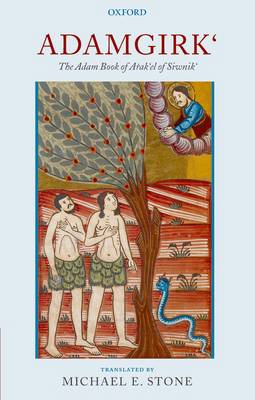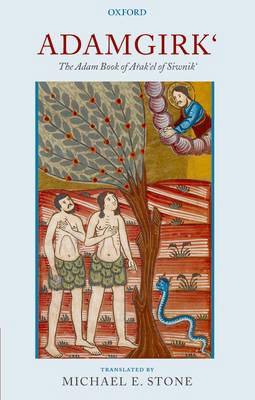
- Afhalen na 1 uur in een winkel met voorraad
- Gratis thuislevering in België vanaf € 30
- Ruim aanbod met 7 miljoen producten
- Afhalen na 1 uur in een winkel met voorraad
- Gratis thuislevering in België vanaf € 30
- Ruim aanbod met 7 miljoen producten
Zoeken
Omschrijving
This is the first English translation of the major Armenian epic on Adam and Eve composed by Arak'el of Siwnik' in the early fifteenth century. Arak'el writes extremely powerful narrative poetry, as in his description of the brilliance of paradise, of Satan's mustering his hosts against Adam and Eve, and Eve's inner struggle between obedience to God and Satan's seduction. In parts the epic is in dialogue form between Adam, Eve, and God. It also pays much attention to the typology of Adam and Christ, or Adam's sin and death and Christ's crucifixion. By implication, this story, from an Eastern Christian tradition, is the story of all humans, and bears comparison with later biblical epics, such as Milton's Paradise Lost. Michael E. Stone's version preserves a balance between literary felicity and faithfulness to the original. His Introduction sets the work and its author in historical, religious, and literary context.
Specificaties
Betrokkenen
- Auteur(s):
- Vertaler(s):
- Uitgeverij:
Inhoud
- Aantal bladzijden:
- 348
- Taal:
- Engels
Eigenschappen
- Productcode (EAN):
- 9780199204779
- Verschijningsdatum:
- 19/04/2007
- Uitvoering:
- Hardcover
- Formaat:
- Ongenaaid / garenloos gebonden
- Afmetingen:
- 151 mm x 218 mm
- Gewicht:
- 539 g

Alleen bij Standaard Boekhandel
+ 354 punten op je klantenkaart van Standaard Boekhandel
Beoordelingen
We publiceren alleen reviews die voldoen aan de voorwaarden voor reviews. Bekijk onze voorwaarden voor reviews.











